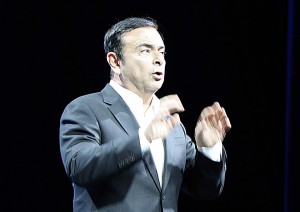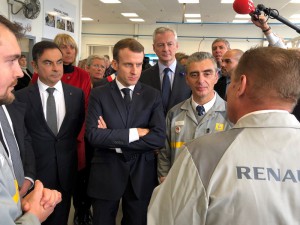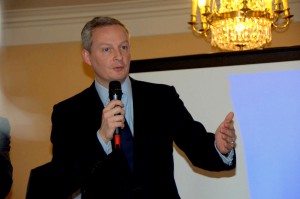
Carlos Ghosn, former CEO of the Renault-Nissan-Mitsubishi Alliance, and his case in Japan has triggered an investigation by the SEC in the U.S.
Nissan says it is facing a probe by the SEC looking into the accuracy of its executive pay disclosures, a probe stemming from the arrest of former Nissan Motor Co. Chairman Carlos Ghosn last November in Japan.
The former executive has been held since Nov. 19, in the Tokyo Detention Center on multiple charges, including allegations that he failed to disclose about $88 million in income. Nissan has also been charged by Japanese prosecutors in connection with the alleged scheme.
“We have received an inquiry and are cooperating fully,” the automaker said in a statement e-mailed to TheDetroitBureau.com that added, “We cannot provide further details.”
Nissan has a major presence in the U.S., with a North American headquarters and several key plants located in Tennessee. It also operates an assembly plant in Alabama. A second Nissan executive charged by Japanese prosecutors, Greg Kelly, is an American. Separately, former Nissan North America CEO Jose Munoz recently tendered his resignation after being assigned to oversee a broad probe of potential executive mismanagement. TheDetroitBureau.com has reported that Munoz was concerned about the scope and tenor of that investigation which some sources have described as a “witch hunt.”
(Nissan CEO Saikawa to resign to improve Alliance. Click Here for the story.)
The crisis began when someone whom Nissan describes as a “whistleblower” raised concerns about Ghosn’s pay and other issues to the automaker’s top management. Questions have been raised, however, about the handling of a matter that might also have been dealt with as a civil issue instead of escalating it to a criminal matter.

Former Renault CEO Carlos Ghosn, left, and French President Emanuel Macron, center, during happier times. Macron is pushing Japan to treat Ghosn better while in custody.
The automaker has since vowed to improve its corporate oversight.
Ghosn was immediately fired by both Nissan and its Japanese affiliate Mitsubishi after his arrest and, last week, resigned from his position as CEO at Renault. He has been held in solitary confinement at the detention center since his arrest, with prosecutors repeatedly blocking the former high-flying executive’s bids to be released on bail.
That has raised concerns about the entire process, some critics contending that Ghosn’s firing and arrest had more to do with internal corporate politics than with any actual crime. Since the arrest, Nissan CEO Hiroto Saikawa has openly spoken of the need for his company to gain more independence from alliance partner Renault. The French carmaker owns a 43.4% stake in its Japanese partner and has the right to appoint board members and senior management unilaterally.
(Click Here for more about Ghosn offering to wear an ankle monitor if released from Tokyo jail.)
During a visit to Egypt on Monday, French President Emmanuel Macron raised concerns about the conditions in which Ghosn is being held. The former Nissan executive appeared gaunt during a court appearance earlier this month and his son indicated Ghosn had by then lost about 22 pounds while in custody.

French Finance Minister Bruno Le Maire said that there would be a fight over any large payout to Ghosn by Renault.
“I have considered that the detention was very long and the conditions of the detention harsh, I have said so to Prime Minister (Shinzo) Abe on several occasions,” Macron told reporters.
While Macron might be taking steps to intervene on Ghosn’s behalf, other members of the French government Monday raised concerns about the possible payout the executive could receive for having resigned from Renault.
The French union General Confederation of Labour, or CGT, has estimated Ghosn could receive an initial payment of as much as $32 million, with an ongoing pension of more than $900,000 annually.
(Renault replaces Ghosn as he languishes in Tokyo jail. Click Here for the story.)
French Finance Minister Bruno Le Maire on Sunday warned that the government – the largest shareholder in Renault – would be “extremely vigilant” and indicated it might take actions to block a payout it saw as “exorbitant.”

$32 million for resignation?!?!?!
$900,000+ annually paid pension?!?!?!
I thought only Wall Streeters got that…;)
“We cannot provide further details.” Not surprising from a company that also hasn’t named their “whistleblower”. “The automaker has since vowed to improve its corporate oversight.” I wouldn’t recommend holding one’s breath.